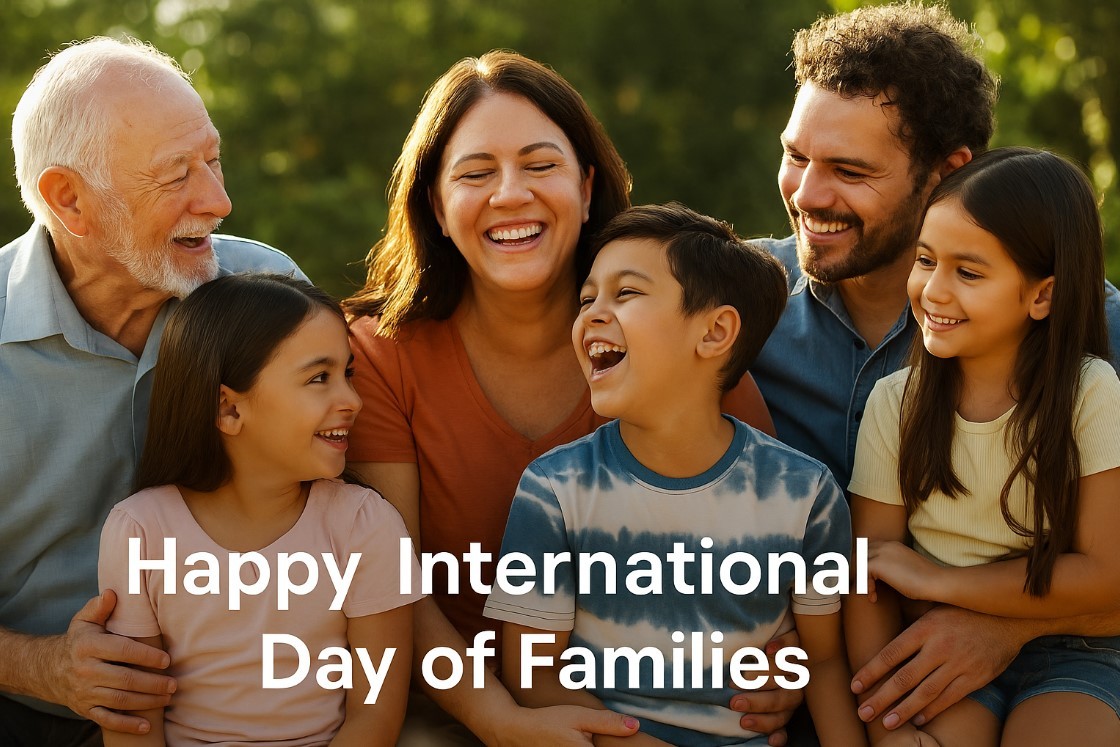International Day of Families (May 15): History, Significance and Celebration
 |
| International Day of Families promotes the importance of a healthy and well-balanced family |
Families are the foundation of society. Our most formative years are spent with our families and those people are likely the most important people in our lives, so they should be celebrated.
The International Day of Families, annually held on May 15, celebrates the importance of families and the work started during the International Year of Families.
History of The Family Day
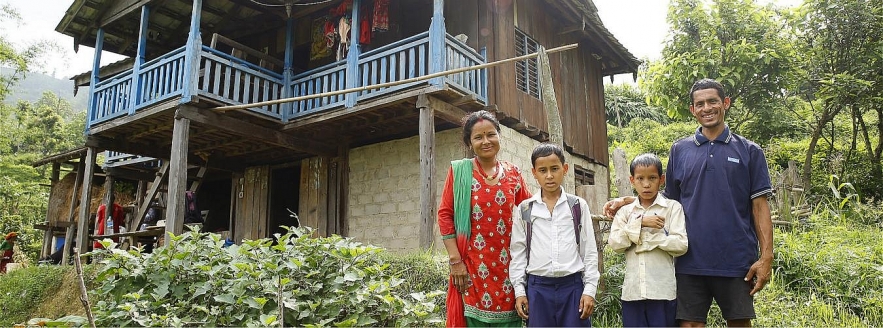 |
The International Day of Families is observed on the 15 May every year. The Day was proclaimed by the UN General Assembly in 1993 with resolution A/RES/47/237 and reflects the importance the international community attaches to families. The International Day provides an opportunity to promote awareness of issues relating to families and to increase knowledge of the social, economic and demographic processes affecting families.
Communities all over the world face obstacles that jeopardize the stability of the family. The UN began to recognize this in the 1980s as the Secretary General promoted awareness among decision-makers and the public. The UN went on to establish this day of observance and, each year, select a different family-focused theme to address world-wide challenges around education, poverty, health, and work/family balance, just to name a few.
During the 1980's, the United Nations began focusing attention on issues related to the family. In 1983, based on the recommendations of the Economic and Social Council, the Commission for Social Development in its resolution on the Role of the family in the development process (1983/23) requested the Secretary-General to enhance awareness among decision makers and the public of the problems and needs of the family, as well as of effective ways of meeting those needs.
In its resolution 1985/29 of 29 May 1985, the Council invited the General Assembly to consider the possibility of including in the provisional agenda of its forty-first session an item entitled “Families in the development process”, with a view to consider a request to the Secretary-General to initiate a process of development of global awareness of the issues involved, directed towards Governments, intergovernmental and non-governmental organizations and public opinion.
Later, based on the recommendations of the Commission for Social Development, formulated in its 30th round of sessions, The Assembly invited all States to make their views known concerning the possible proclamation of an international year of the family and to offer their comments and proposals.
The Council also requested the Secretary-General to submit to the General Assembly at its forty-third session a comprehensive report, based on the comments and proposals of Member States on the possible proclamation of such a year and other ways and means to improve the position and well-being of the family and intensify international co-operation as part of global efforts to advance social progress and development.
In its resolution 44/82 of 9 December 1989, The General Assembly proclaimed The International Year of the Family.
In 1993, the General Assembly decided in a resolution (A/RES/47/237) that 15 May of every year should be observed as The International Day of Families. This day provides an opportunity to promote awareness of issues relating to families and to increase the knowledge of the social, economic and demographic processes affecting families.
On 25 September 2015, the 193 member states of the United Nations unanimously adopted the Sustainable Development Goals, a set of 17 goals aiming to eliminate poverty, discrimination, abuse and preventable deaths, address environmental destruction, and usher in an era of development for all people, everywhere. Families and family-oriented policies and programmes are vital for the achievement of many of these goals, according to the United Nations.
Why International Day of Family is Inmportant ?
 |
While families today may look different than they did thousands of years ago, they are as equally important now as they were then. The United Nations believed families important enough to recognize them through a day of observance and, in 1994, chose May 15 as International Day of Families.
It is also very easy to take our family for granted, so take this day as an opportunity to share with your family how you feel about them and how grateful you are to your parents, siblings, and even extended family for providing you with the necessities of life and a whole lot of TLC. Pick a restaurant your family loves or, better yet, one that you all went to while you were growing up, and have a nice evening chattering with your family and catching up on each other’s lives.
It highlights the importance of family in society
If we have stronger families, we will have stronger schools and stronger communities. A strong family unit can help each member feel more fulfilled and better about themselves and the world. It also provides a real-life example of how the human family can work together to create a better world.
It reminds you that all families don’t look alike
Every family is different—family can be defined in many different ways, and the International Day of Families recognizes that. Some families consist of children; some do not. Some consist of one parent; others more than one. International Day of Families is about more than just celebrating those who share DNA with you—it’s about celebrating all of the people you love, cited from National Today.
Celebration - Day of Families
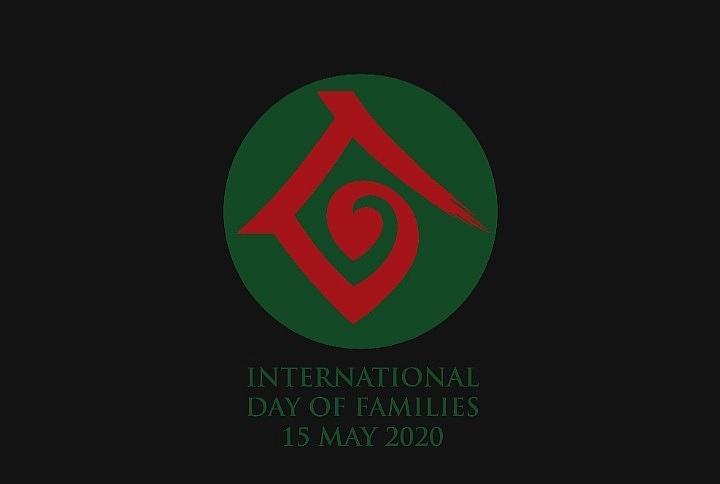 |
International Day of Families is celebrated to promote the importance of a well-balanced and healthy family. The first International Day of Families was celebrated in 1994.
What Do People Do?
A wide range of events are organized at local, national and international levels. These include: workshops, seminars and policy meeting for public officials; exhibitions and organized discussions to raise awareness of the annual theme; educational sessions for children and young people; and the launch of campaigns for public policies to strengthen and support family units. In some countries, tool kits are created to help people organize celebrations aimed at a particular section of the population, such as school children or young adults.
Public Life
The International Day of Families is a global observance and not a public holiday.
Symbols
The symbol of the International Day of Families consists of a solid green circle with an image in red. The image consists of elements of simple drawings of a heart and a house. This indicates that families are the center of society and provide a stable and supporting home for people of all ages, reported by TimeandDate.
* READ MORE:
 Amarnath Yatra: History of The Holy Cave, Information About Pilgrimage This Year Amarnath Yatra: History of The Holy Cave, Information About Pilgrimage This Year Amarnath Yatra is one of the four great Indian pilgrimages. Every year devotees often walk through the Himalayan mountains in southern Kashmir to reach the ... |
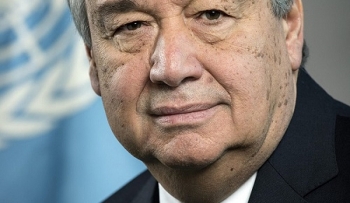 Who is António Guterres - The Ninth Secretary-General of the United Nations Who is António Guterres - The Ninth Secretary-General of the United Nations Who is António Guterres: If you are curious about António Guterres - the current Secretary-General of the United Nations, stay tuned to check out his ... |
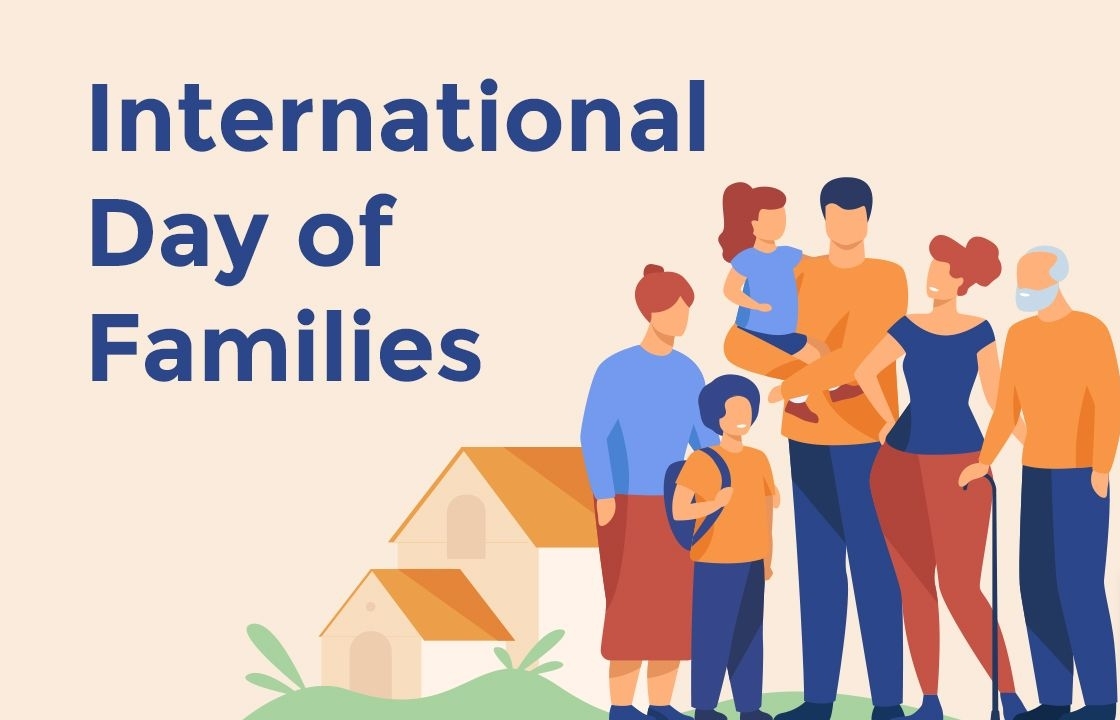 Day of Families (May 15): Great Quotes, Best Wishes and Messages Day of Families (May 15): Great Quotes, Best Wishes and Messages Just like in “The Godfather,” the importance of family is emphasized on International Day of Families on May 15. Check out all the best wishes, ... |

